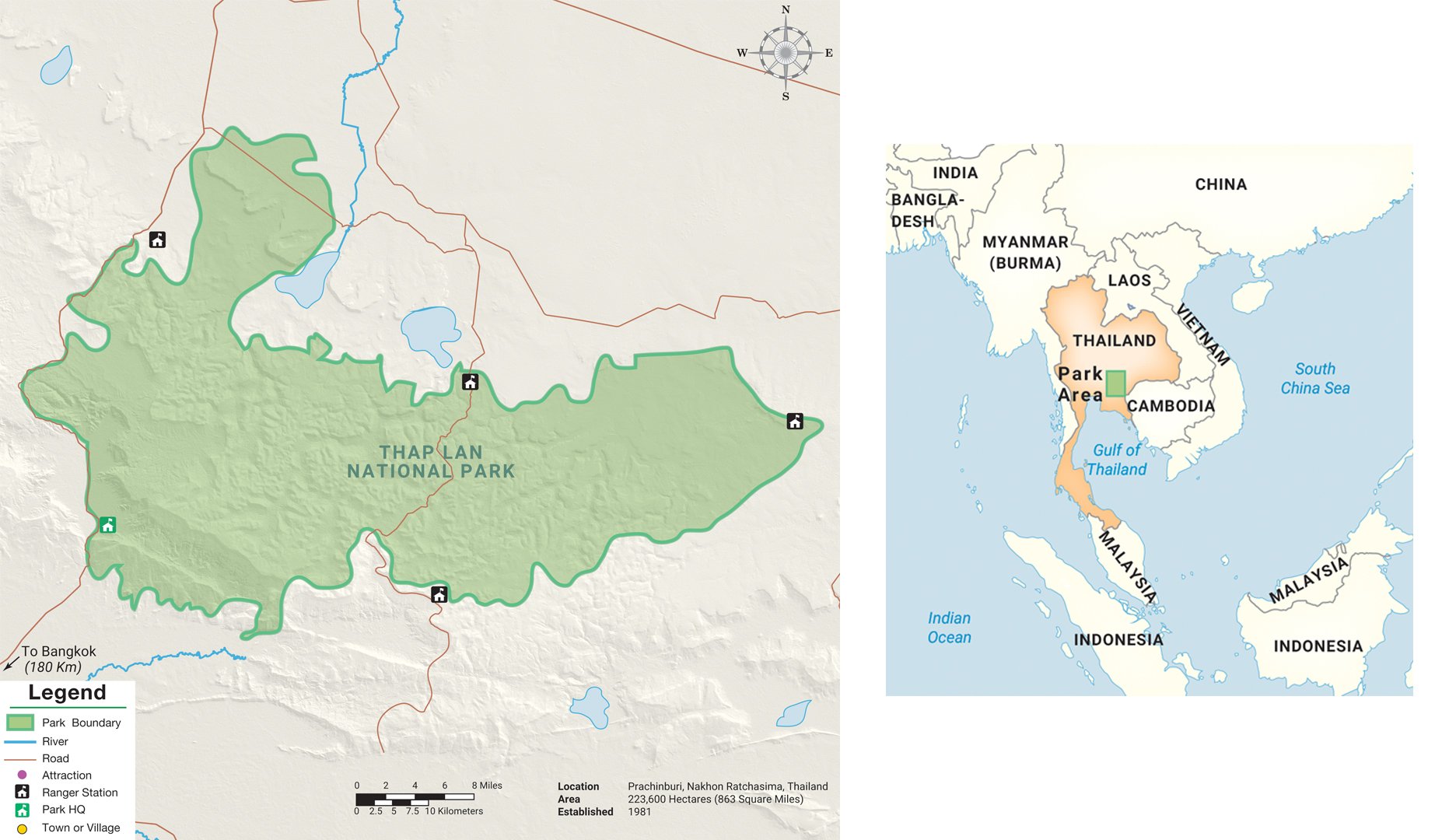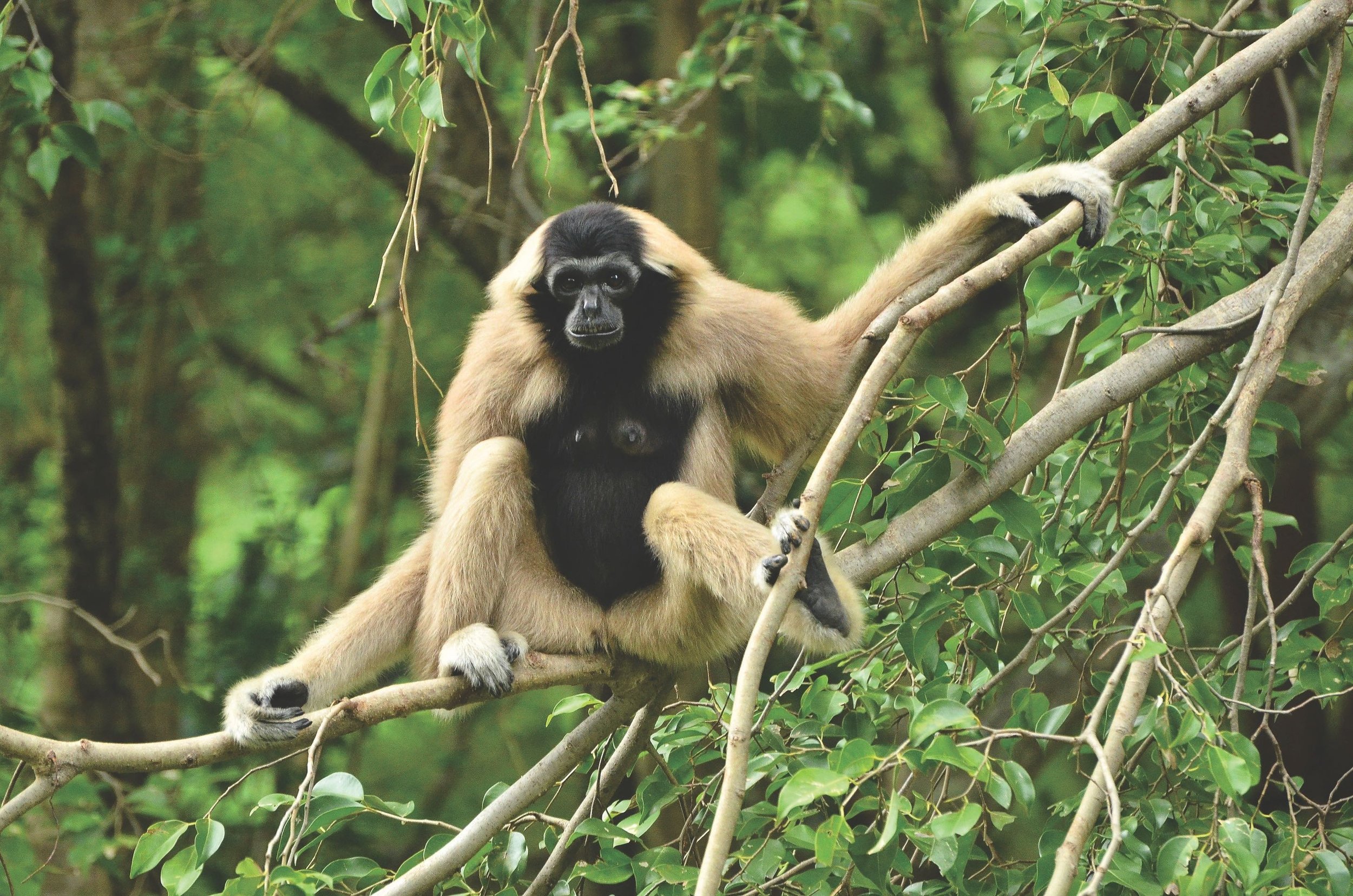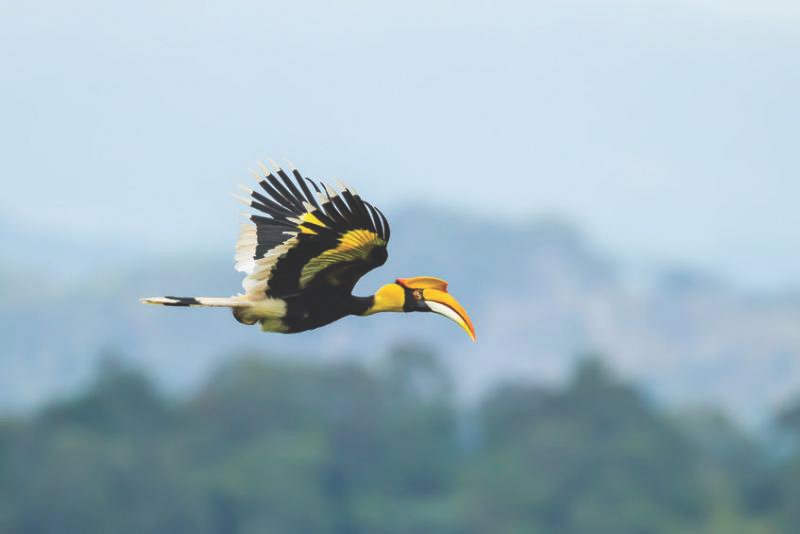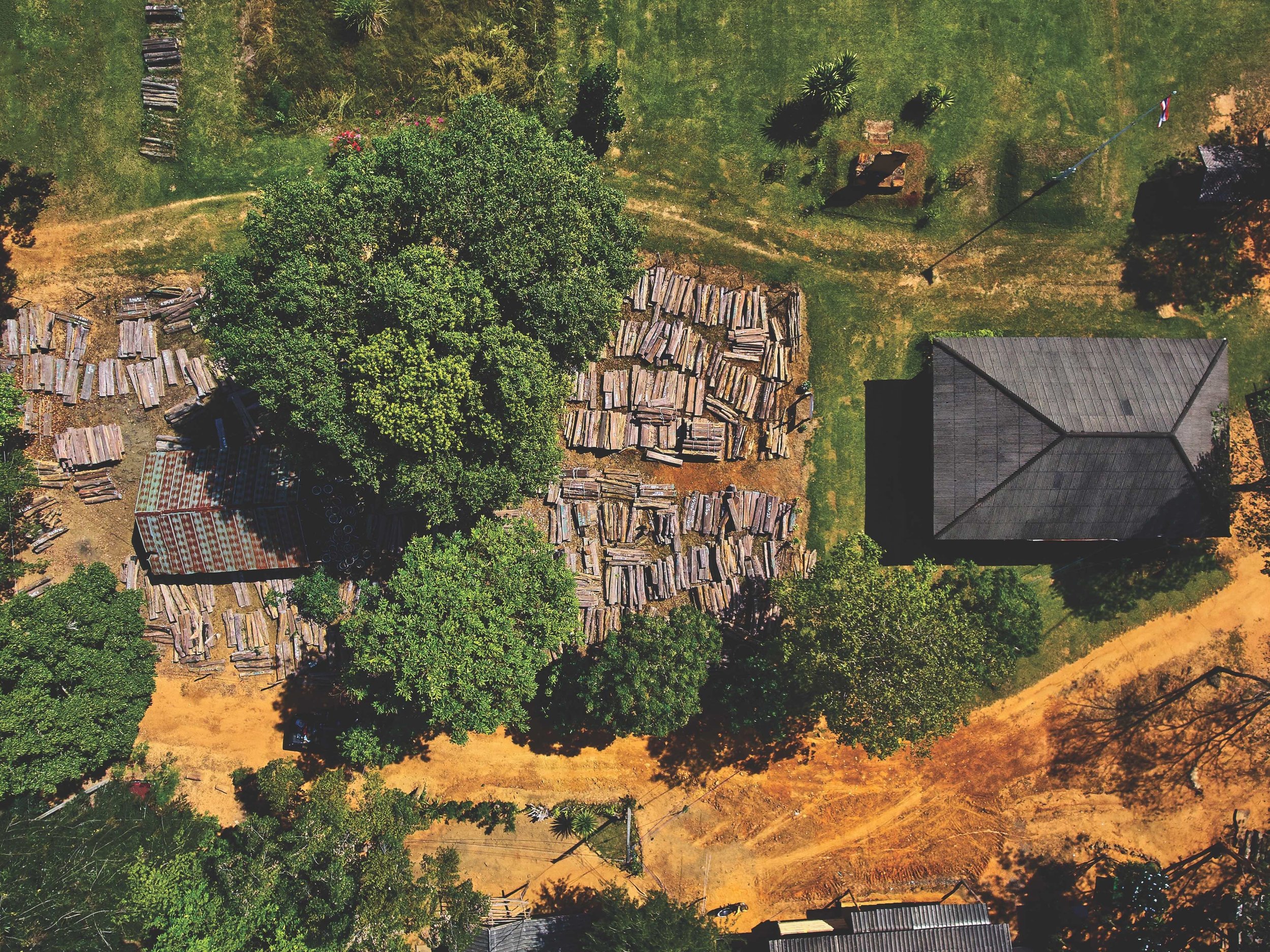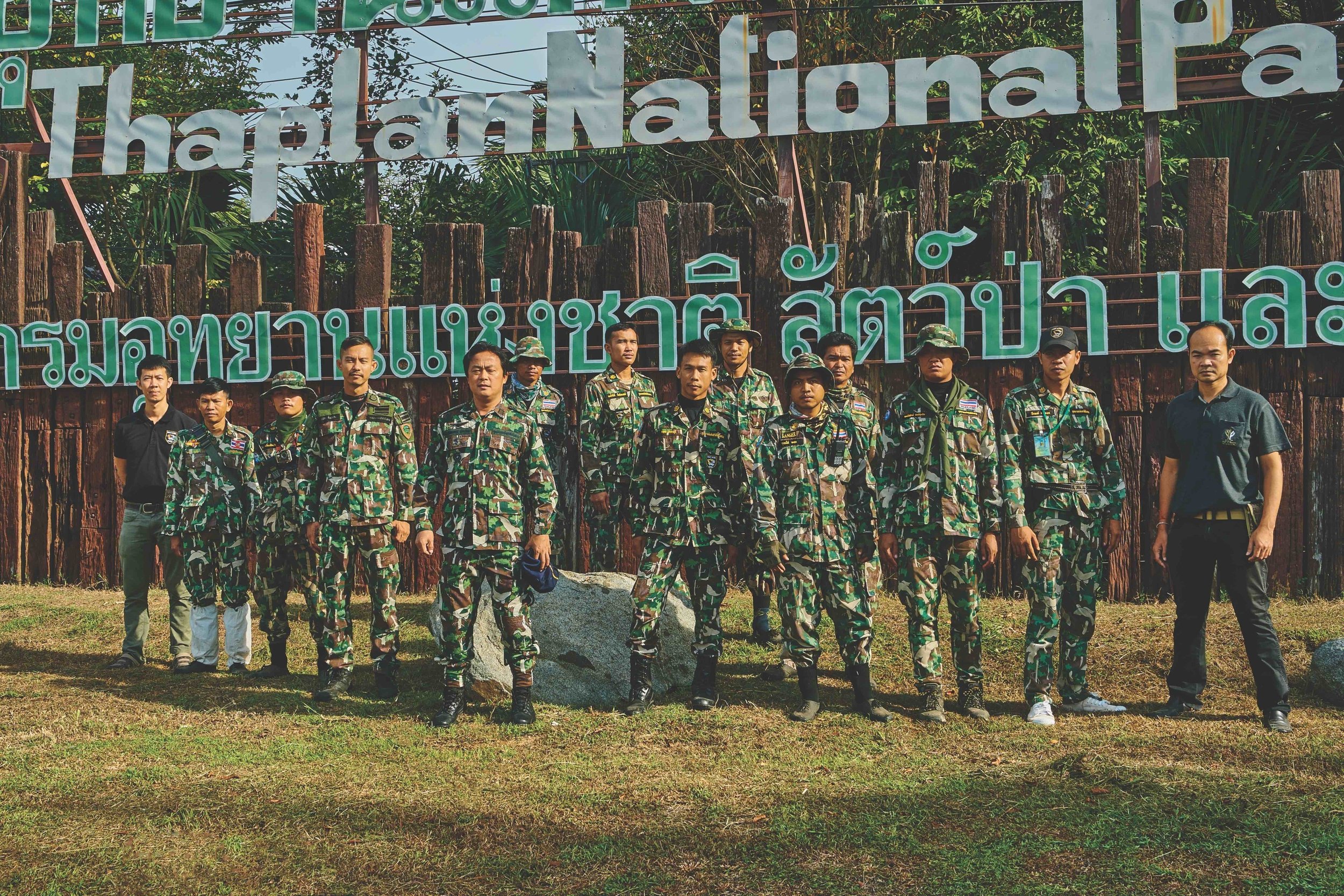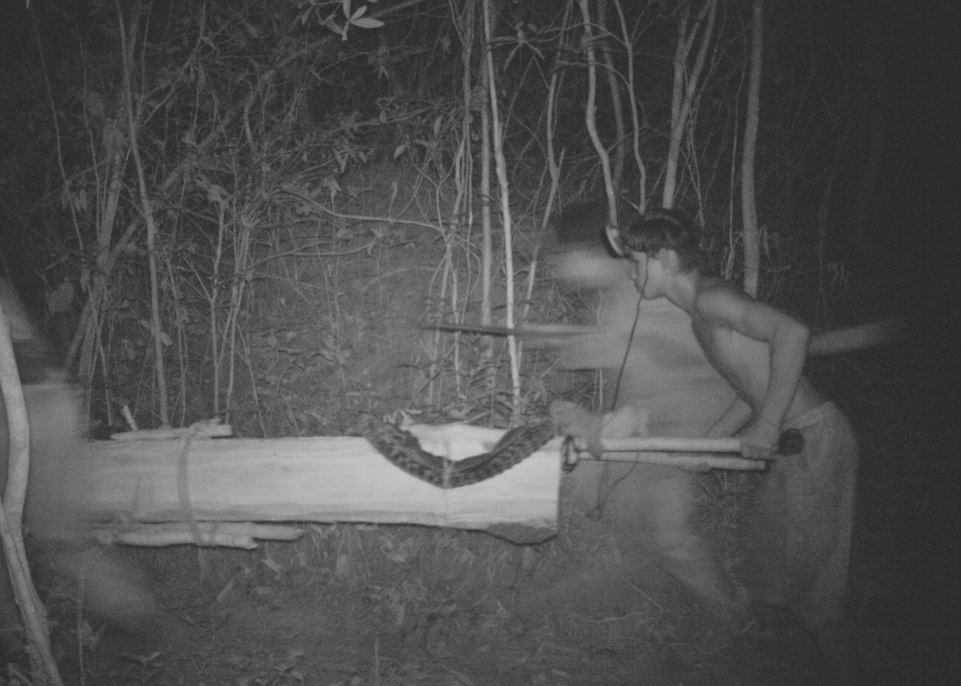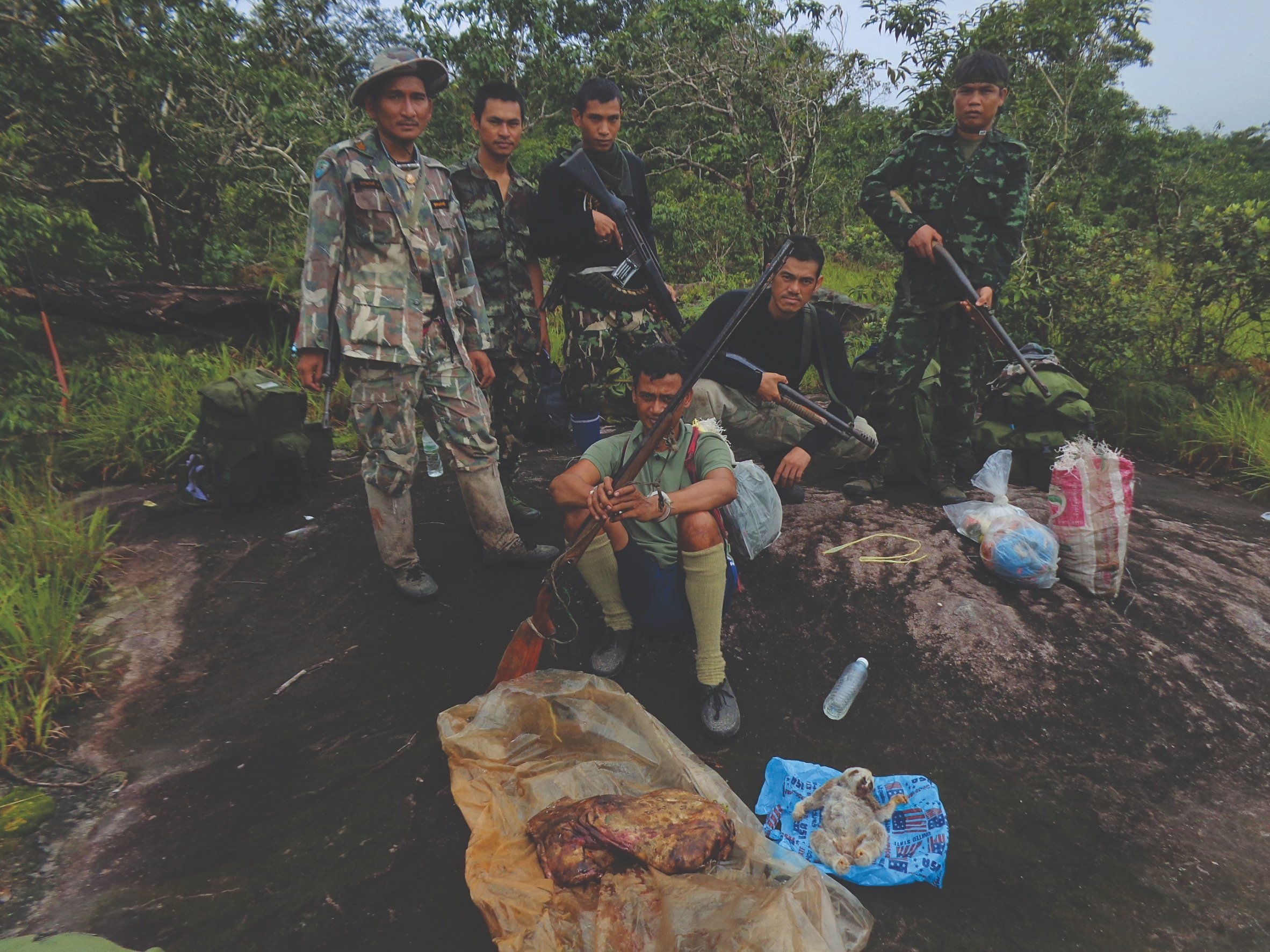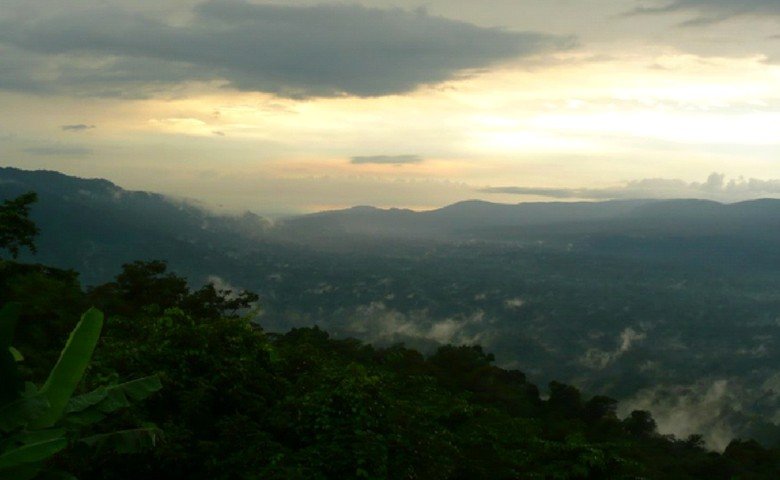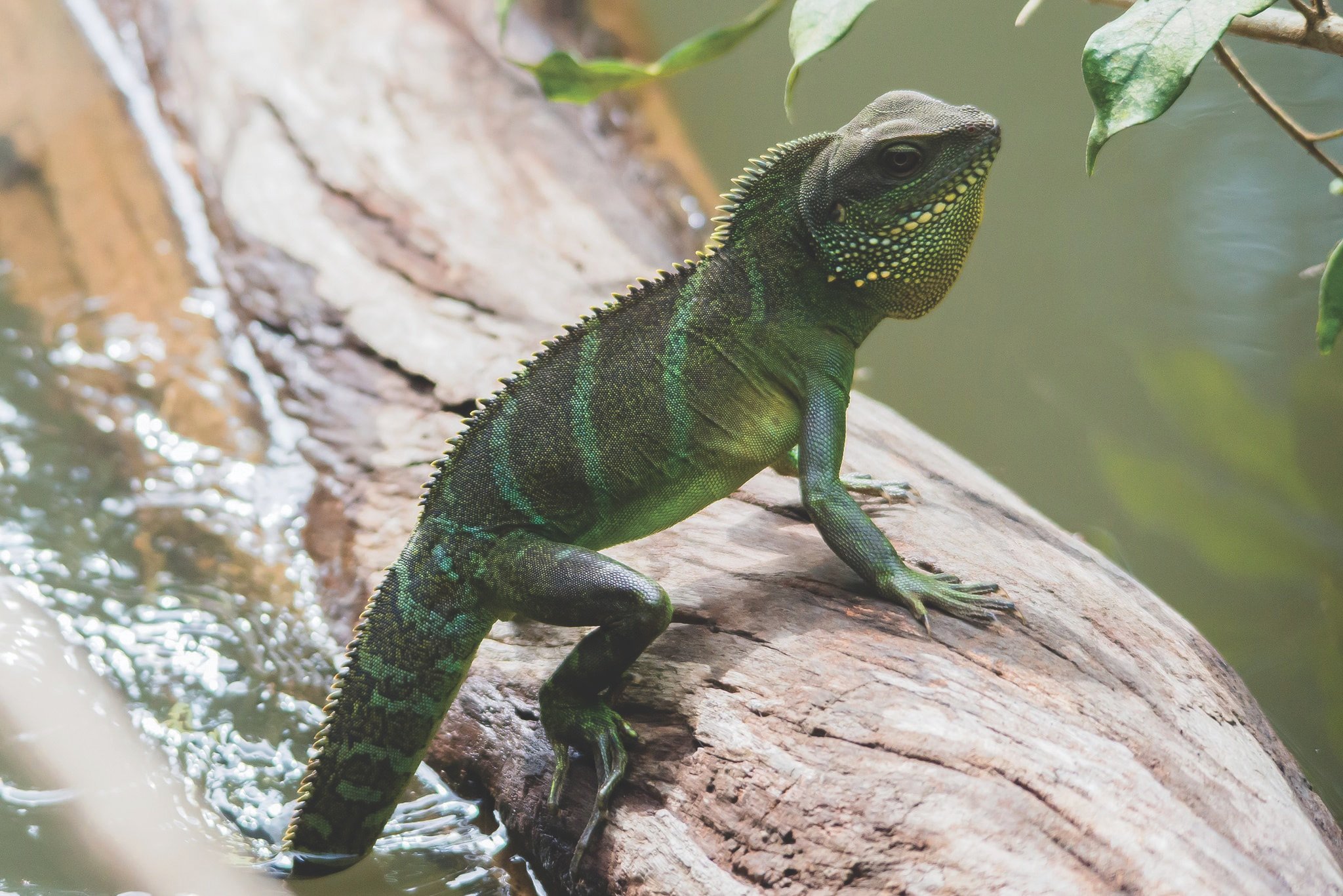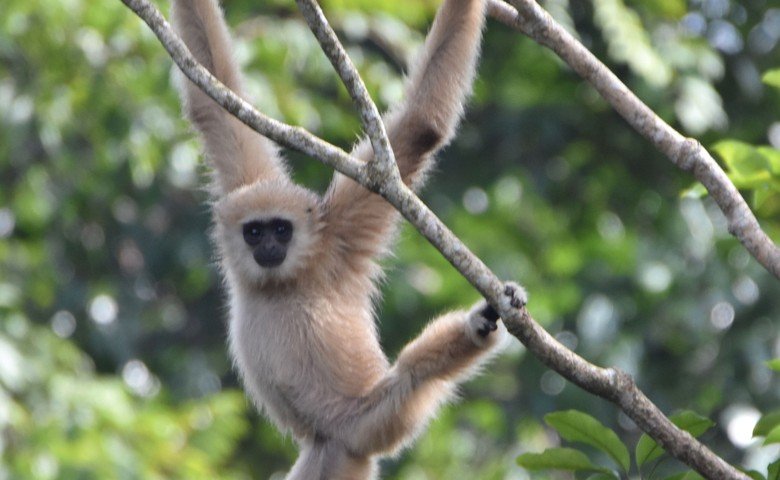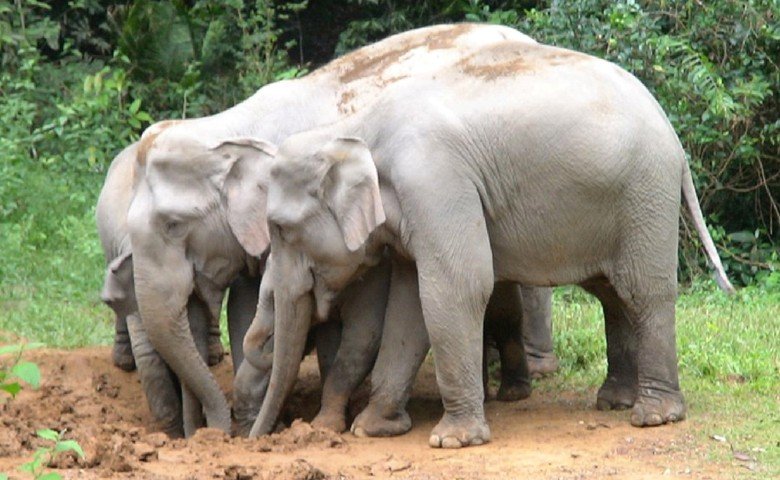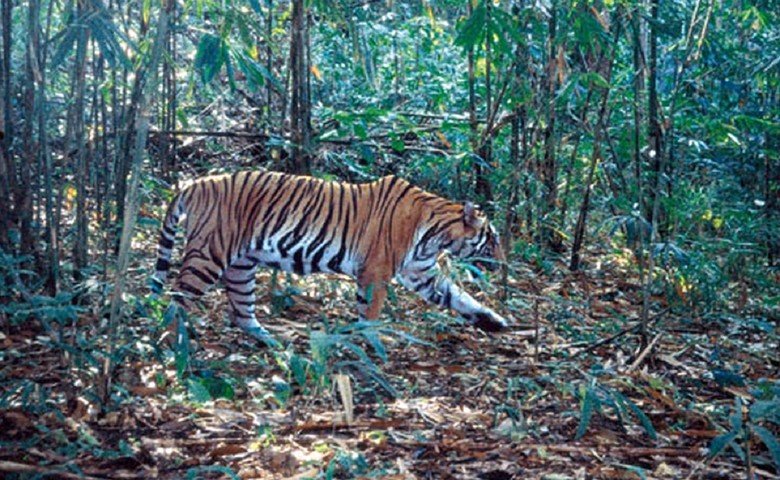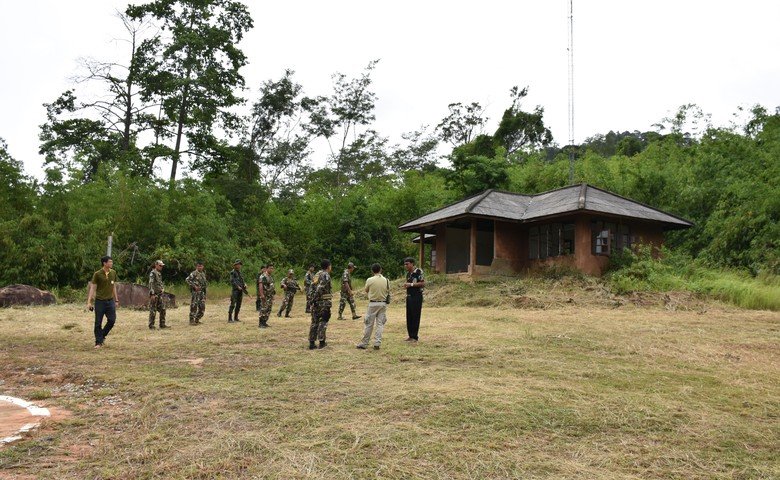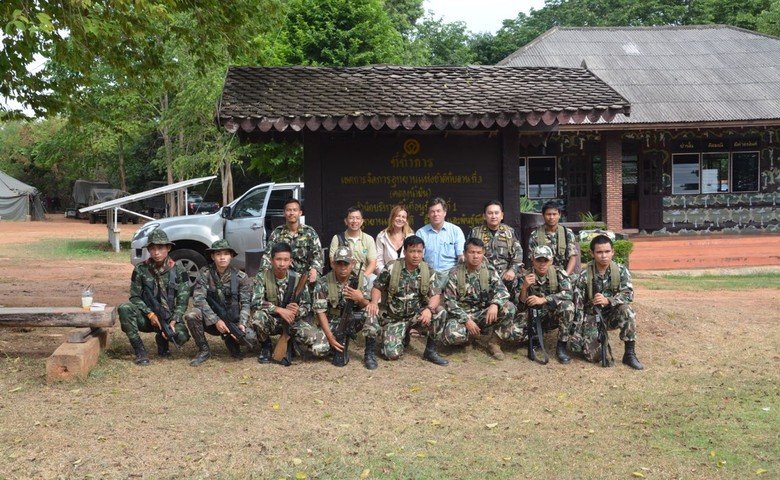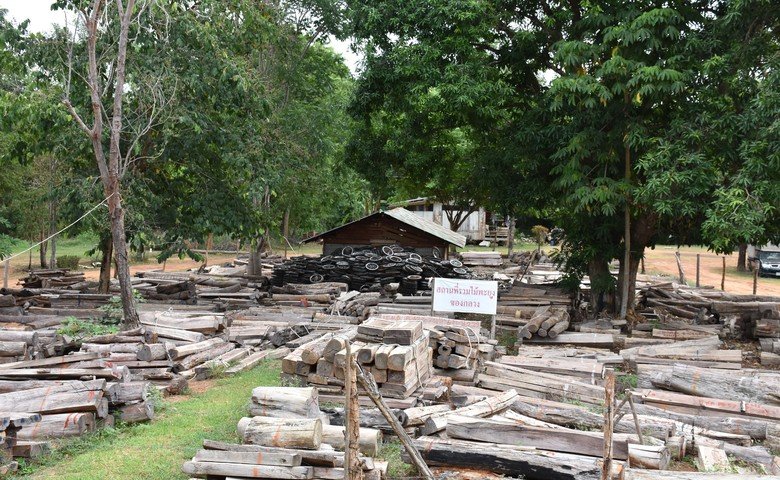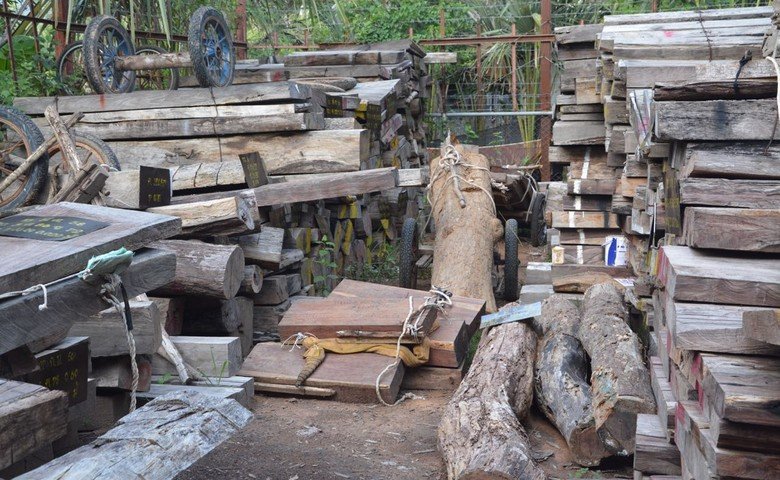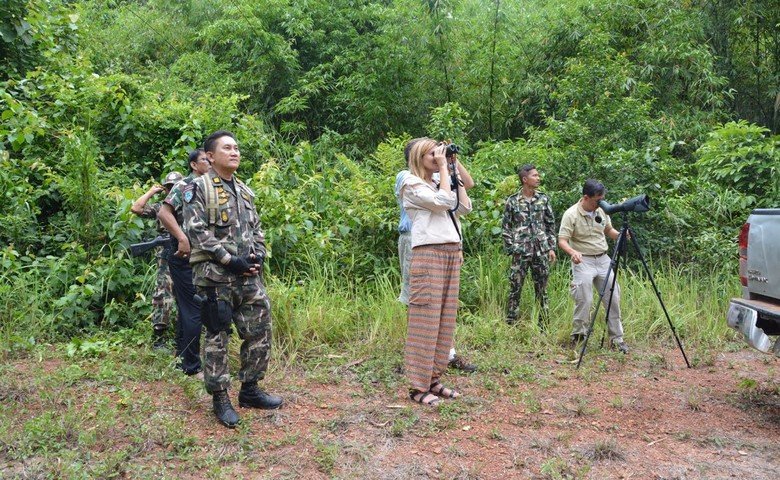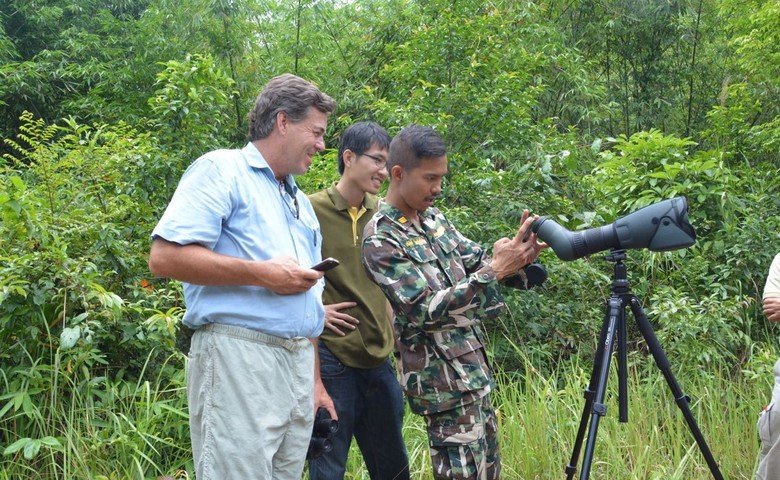Thap Lan World Heritage Site, Thailand
OVERVIEW
Thap Lan is Thailand’s second largest park and one of the last intact habitats for a suite of threatened and endangered species, including tigers, elephants, clouded leopards, Malayan sun bears and hornbills.
A globally important biodiversity hotspot, Thap Lan is threatened by poaching and illegal logging, especially for Siamese Rosewood. Global Conservation is now working to protect this ecosystem and its endangered wildlife.
SIZE
230,000 Hectares
GOAL
$720,000
VISITORS BY 2025
7,500
Introduction
With their daunting size and incredible strength, tigers have long been a symbol of power and energy for Buddhists in Thailand.
Tigers are the world’s largest cat, yet among the most elusive – their orange and black stripes, so striking when taken out of context, allow them to melt at will into the warm glow of tropical forests. Unfortunately, over the last few decades they have become even harder to see as their numbers decline dramatically due to poaching and habitat loss.
Throughout most of Thailand, tigers have been driven to local extinction. Until recently, conservationists thought that there was only one remaining viable population of tigers in the country, along its western border with Myanmar. Then, in 2017, a population of at least 18 cats was found in Thap Lan National Park, a second refuge for tigers in Thailand. Khao Yai National Park next door in the Dong Phayayen - Khao Yai Forest Complex (DPKY) already has lost its tigers due to illegal poaching. With proper sustaining protection, tigers can be repopulated in the entire DPKY.
There are fewer than 1,500 Indochinese tigers left in the world. Here, a family feeds on freshly caught prey.
Natural Heritage
Thap Lan is Thailand’s second largest park and one of the last intact habitats for a suite of threatened and endangered species: elephants, Asiatic bears, clouded leopards, banteng, gaur, sambar, malayan sun bears, hornbills, and over 800 other vertebrate species.
This area, a UNESCO World Heritage Site, contains the last substantial piece of Southeastern Indochina dry evergreen forests in the world. It is one of the rare forest landscapes in Thailand that supports two species of globally endangered gibbons—pileated and white-handed. Intriguingly, scientists think that the depths of these poorly-explored forests, with their vast valleys, deep chasms, and thundering waterfalls, might still contain one of the world’s most endangered mammals. The kouprey has not been sighted in Thailand for more than 30 years, but this rare wild cow could be valuable for breeding disease-free lines of domestic cattle.
Thap Lan is at the heart of the DPKY, a 595,700 hectare cluster of five contiguous national parks and a globally important biodiversity hotspot.
Threats toThap Lan
Yet, Thap Lan and its tigers are under threat, in part because the park is the epicenter of Thailand’s Rosewood Wars. Hundreds of illegal loggers and their crews are cutting the last Siamese rosewood trees, one of which can be worth $4,000-6,000, and killing the rangers who try to stop them. Those deaths and rosewoods’ red-hued timber have led conservationists to call it “bloodwood.”
In July 2015, these Rosewood Wars, a lack of law enforcement, and a proposal to build a highway through the DPKY caused the UNESCO World Heritage Committee to threaten to downgrade the DPKY to the World Heritage in Danger list.
Saving Thap Lan
To try and stem the illegal logging and wildlife poaching that go hand-in-hand, Global Conservation is supporting Thailand’s Department of Parks and Wildlife and the Wildlife Conservation Society’s use of Global Park Defense to achieve “No Kill, No Cut”.
The transnational crime syndicates that run these logging operations have long enjoyed an advantage over park rangers because of superior numbers, funding and weaponry. That equation changed in 2016 with the deployment of Global Park Defense systems, technology and training. By 2018, we had achieved our 500th arrest of illegal loggers in Thap Lan National Park – a clear indication of both the degree of threat to this unique place and the effectiveness of Global Park Defense.
The multi-year deployment of Global Park Defense includes training for rangers on night patrolling, park protection systems, armed combat, and improving patrol effectiveness. Focused on breaking up the Thai syndicates, middle men, and the supply chain providing illegal teams with chainsaws and supplies, Global Park Defense technology gives Thap Lan Park Rangers a “force multiplier” by targeting patrols and improving park-wide protection. Global Park Defense also implements the latest technologies from military and civil police for the national park including cellular and radio-based camera traps, seismic ground sensors and drone-based aerial surveillance, combined with daily updated satellite imagery to monitor illegal activities and encroachment.
SMART ranger patrols are increasing patrol coverage, interdiction and perceived protection using GPS-based data collection to detect illegal poachers, loggers and encroachment early, leading to more arrests and prosecutions. Rangers also map key forest and wildlife habitats during SMART patrols.
Finally, an anonymous informant reward system helps eliminate corruption by park officials. Global Park Defense plaques are attached on or near official park signage on the entire park border with a toll-free number to report illegal activities. An independent 24/7 call center logs and reports all legitimate calls which are professionally reviewed and dispatched. Internet teams of current and former law enforcement officers, along with wildlife crime experts vet reports before forwarding to park authorities and law enforcement officers. Global Park Defense is an international and national supported fund that offers up to $1000 rewards for anonymous informers that result in a successful prosecution, and up to $200 in the case of a successful arrest. This anonymous informant reward system helps eliminate corruption by park officials as well as criminals destroying national and world heritage.
Without Global Conservation’s Global Park Defense program, all the rosewood trees and many endangered wildlife species living in the park will be lost. But with proper sustaining protection, tigers can be repopulated in the entire Dong Phayayen - Khao Yai Forest Complex, restoring this iconic species to its rightful realm. We feel secure that the Government of Thailand, with our help, will be successful in the long-term protection and repopulation of tigers and other endangered wildlife species that roam these forests.
Global Conservation Progress
Over the past five years, we've worked with our partners to achieve the following conservation outcomes in Thap Lan National Park:
Reduced illegal activities and encroachment.
Introduced sustainable tourism for increased park revenues and government and public recognition.
Strengthened the SMART patrol system.
Restored the Lum Prang Ranger Station in the core of the park to full function.
Restored key wildlife habitats to allow recovery of tigers, elephants, and other large wildlife, and provided viewing areas for visitors.
Tripled the number of rangers, provided them with military support, and increased park operations and capital investment available by 3-4 times.
Provided supplies, GPSs, digital cameras, high quality uniforms, field gear, and other necessary supplies to improve the morale of park rangers and patrol effectiveness.
Installed and improved the SMART Patrol Center for Thap Lan National Park to be used as a place for monthly patrol meetings among park officers and rangers.
Provided rewards for park rangers for important arrest cases.
Provided rewards for informants who give intelligence information to help enforcement.
Installed a park-wide radio communications system for rangers and sensors/camera traps.
Implemented hidden cellular camera traps on trials used by poachers to detect movement of rosewood and wildlife poachers; real-time photos informed park rangers for timely interdiction.
Implemented seismic sensors to detect illegal pedestrian or motor vehicle activities in and around the park.
Began flying UAVs (drones) regularly across the entire park border and sensitive areas to monitor encroachment and to detect poaching and logging camps.
Installed a command and control system using GIS and LANDSAT 8 data analysis, integrating patrol communications and dispatch systems.
Began scientific monitoring of wildlife populations using transect patrolling and camera traps to count tigers, leopards, bears and other wildlife every year.
Critical Initiatives:
Global Park Defense rapidly increases the actual and perceived protection of the national park, greatly reducing illegal activities. At Thap Lan, Global Conservation will sponsor four Global Park Defense initiatives that work together to combat and eliminate illegal poaching, logging and mining using existing park ranger teams:
Border Demarcation
Informant Rewards System
Advanced Surveillance
SMART Ranger Patrols
Thap Lan rangers on patrol.
Species Facing Extinction
In Thap Lan National Park, we worked with our partners to protect the Indochinese tiger. We are continuing to support tiger conservation in Huai Kha Khaeng and Thung Yai World Heritage Site, Thailand.
Only 220 Indochinese tigers remain in the wild, with most of them in Thailand. The Indochinese tiger is a critically endangered population of tiger native to Southeast Asia, though it now only occurs in Thailand and Myanmar.
Partners in Conservation
WCS has been working in Thailand for more than 20 years with the opening of the WCS Thailand office in 1997. Since 2005, WCS has focused its resources on the recovery of tigers and their prey in the core area of Thailand's Western Forest Complex (WEFCOM), a World Heritage Site also known as the Huai Kha Kheang and Thung Yai Wildlife Sanctuaries (HKK-TY).
With over a decade of continuing efforts on the ground in HKK-TY, the most successful products are UNESCO World Heritage designation, an intensive tiger population monitoring system using camera trapping, and the first rigorous population survey of tigers and ungulates across the whole 18,000 sq. km UNESCO World Heritage site. With the success of anti-poaching and anti-encroachment at WEFCOM, WCS is working to extend the model to other national parks in Thailand and other countries in the region.
Thailand Department of National Parks, Wildlife and Plant Conservation (DNP)
The DNP is an agency of the Thai Ministry of Natural Resources and Environment. We work closely with the DNP in Thap Lan.
Thap Lan in the News
Phys.org - New study confirms the importance of tiger population in Thailand forest complex
Bloomberg - Six Baby Elephants Trapped in Thailand Saved by Park Rangers
Bangkok Post - Fence to guide wildlife between UNESCO parks
Mongabay - Thap Lan: Thailand's unsung forest gem under threat, but still abrim with life
Bangkok Post - High hopes for tiger population doubling
Financial Times - China and the Rosewood Carve-Up



